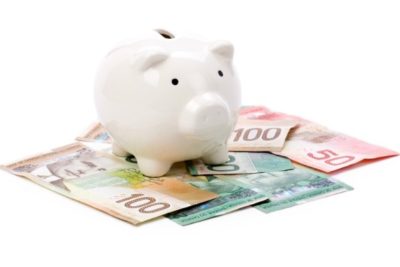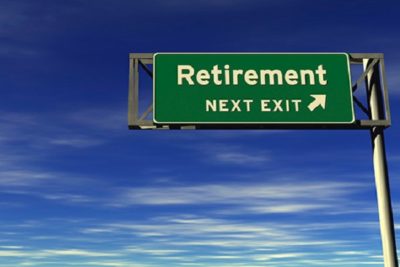I do a lot of tax planning for pharmacists around this time of year. Why? Because many tax saving opportunities expire on December 31.
So if you want save money, you need to take action before time runs out.
What a year it’s been! Canada elected a new Prime Minister (Trudeau) just a year ago, and the United States just elected a new President (Trump).
Despite all the uncertainty, one thing is for sure: Your tax bill is about to change. Trudeau has already made several tax changes for 2016. And President Donald Trump has some big changes planned. (“It’s going to be beautiful. Believe me.” as Trump would say.)
Want to be prepared? Here are 11 tax saving tips for pharmacists in Canada.
Plus: Will President Trump have an impact on Canadian taxes? Absolutely! As a bonus, we look at what a Trump victory means for Canadian taxes. (The answer will likely surprise you!)
Download this checklist to help you save tax in 2016. It includes our bonus tip: How President Trump will Impact Canadian Taxes. (Available until March 31, 2017.)
Tax Tips for Families:
1) Children’s Fitness and Arts Credits (Expires Soon!)
These two popular tax credits are expiring at the end of 2016.
The Children’s Art credit is a non-refundable tax credit on a maximum of $250 qualifying expenses. The Children’s Fitness credit is a refundable tax credit on a maximum of $500 qualifying expenses.
Tax Tip: If you didn’t max out these credits in 2016, consider prepaying your child’s expenses for 2017. For example, if your child plans to play soccer in 2017, prepay that expense before December 31 to be able to deduct it in 2016.
2) Education and Textbook Amounts (Expires Soon!)
These two tax credits are expiring in 2016, too.
The education amount is a non-refundable tax credit worth 15% on $400/month of full-time post secondary education, or $120/month for part-time schooling. Carry forward rules will still apply to remaining balances that occurred prior to 2017.
Tax Tip: If the student does not have enough income to use up the credits in year of attendance, up to $5000 can be claimed by the student’s spouse, partner, supporting parent or grandparent.
3) RESP contributions
Who doesn’t like free money?
RESPs are a tax efficient way to save for your children’s post-secondary education. And the best part: The government kicks in 20% on the first $2,500 you deposit into an RESP each year, to a maximum of $500. This free government money is called the Canada Education Savings Grant (CESG).

All unused RESP contributions accumulate and carry forward. So each child can receive up to $1,000 in CESG money each year, to a $7,200 lifetime limit.
But grant money is only paid up to and including the year the child turns 17.
So here’s the problem: If you have less than 7 years before your child or grandchild turns 17 and you haven’t maximized RESP contributions, you will not have time to receive the full $7,200 lifetime benefit.
Tax Tip: This is free money people! Make an RESP contribution before December 31 to get the government grant. This is especially important if your child was born in 2006 and you haven’t made any RESP contributions.
4) Pay Interest on Student Loans
You can claim a non-refundable tax credit for the amount of interest paid on student loans received under several federal and provincial programs.
Tax Tip: While the credit can only be claimed by the student, the loan interest can be paid by a related party like a parent.
5) Home Renovations for Home Accessibility
The Home Accessibility TAx Credit (HATC) is new for 2016. It equals 15% of up to $10,000 of expenses per year towards renovations that make a home safer or more accessible for an eligible individual. Those entitled to the credit include seniors and persons with disabilities.
Tax Tip: People related to the eligible person may also qualify for this credit. The HATC applies to payments made by December 31 for work performed and/or goods acquired in 2016. Also, a single expenditure may qualify for both the HATC and the medical expense tax credit, and both may be claimed.
Tax Tips for Investors:
6) Tax Free Rebalancing of Corporate Class Mutual Funds (Expires Soon!)
 Many pharmacists invest in mutual funds. Some of these mutual funds are corporate class funds or “switch funds.” Switch funds were created to allow investors to exchange shares between different mutual funds without triggering taxes.
Many pharmacists invest in mutual funds. Some of these mutual funds are corporate class funds or “switch funds.” Switch funds were created to allow investors to exchange shares between different mutual funds without triggering taxes.
A common investment strategy is portfolio rebalancing – buying and selling different parts of your portfolio to get back to your long-term plan. Switch funds make it possible to rebalance your portfolio on a tax-deferred basis.
Switch funds lose their tax deferral benefit on January 1, 2017. (This doesn’t apply to switches between different series of the same class of shares.)
Tax Tip: If you hold these mutual funds in your portfolio, you have until December 31, 2016 to make any portfolio changes on a tax-deferred basis.
7) Tax-Loss Selling
Tax-loss selling involves selling investments that have losses to offset capital gains realized elsewhere in your portfolio. Capital losses that cannot be used in the current tax year can be carried back three years or carried forward indefinitely to offset net capital gains in other years.
If you plan to repurchase a security you sold at a loss, just be aware of the “superficial loss” rule. Under this rule, you loss will be denied if you or an affiliated person repurchases the security within 30 days of the sale date.
Tax Tip: You need to make sure the sale settles in 2016. For securities, that usually takes three days. So if you want to use the loss in 2016 (or one of the three years prior) you need sell no later than December 3, 2016.
8) Make a contribution to an RRSP or TFSA
You have until March 1, 2017 to make an RRSP contribution for the 2016 tax year. But early contributions will maximize your tax-deferred growth.

The same idea applies to TFSAs. But instead of tax-deferred growth you get tax-free growth with the TFSA. Sweet! You don’t get a tax refund with the TFSA, but you don’t accumulate a future tax bill either (like you do with RRSPs).
Tax Tip: Make your TFSA and RRSP deposits as early as possible to maximize tax-free and tax-deferred growth.
9) Pay Investment Expenses
Certain investment expenses are tax deductible, like interest paid on money borrowed to invest, or investment counsel fees on non-RRSP / RRIF accounts. These amounts must be paid in 2016 to be eligible for deduction.
Tax Tip: Make sure eligible investment expenses are paid before December 31.
Tax Tips for Charitable Donors:
10) Make a Charitable Donation
December 31 is the last day to make a donation and get a tax receipt for 2016. Here’s some good news for all you last minute people: Many charities have online donation pages that can instantly email you a receipt.
Tax Tip: Some federal and provincial donation tax credits are worth up to 50% of the value of your gift in 2016. You may also be eligible for federal First Time Donor’s Super Credit (FDSC) if neither you or your spouse claimed the donation tax credit from 2008 to 2016.
11) Make in-kind gifts
You can also donate publicly traded securities that have grown in value.
Tax Tip: If you donate a security that has a capital gain, you get a tax receipt for the fair-market value of the security donated, but the capital gain tax is eliminated.
Here’s What to Do Next…
Many of these tax saving tips expire soon, so you need to take action before time runs out.
I’ve also made things simple for you. Click on the link below to get a checklist of these tax tips. It’s a useful tool that can serve as a reminder.
As a bonus, I’ve included an extra tax tip in the checklist: How President Trump Will Impact Canadian Taxes. (Again, the answer will likely surprise you!)
Download this checklist to help you save tax in 2016. It includes our bonus tip: How President Trump will Impact Canadian Taxes. (Available until March 31, 2017.)




